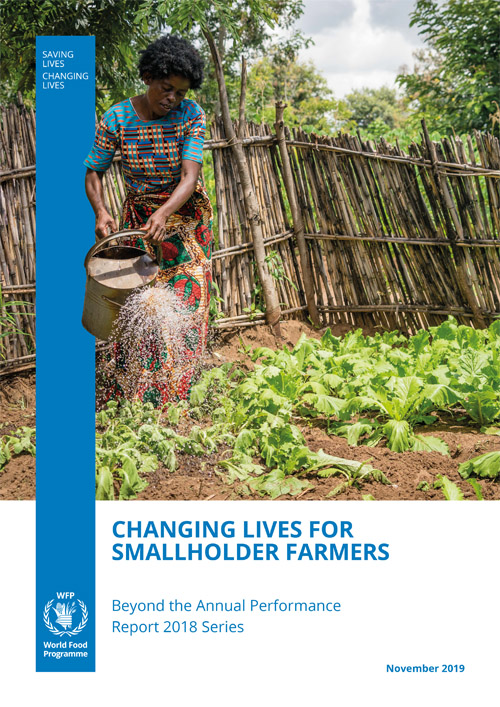Around 500 million smallholder farms support the livelihoods of up to 2.5 billion people and produce more than 80 percent of the food consumed in large parts of the developing world.
While smallholder farmers produce much of the world’s food, they face major challenges in profitable market engagement. Due to their physical, economic, social, and political marginalization, most smallholders pursue low productivity and subsistence-oriented livelihoods that instigate meagre and unhealthy diets. Millions of smallholders are therefore chronically food insecure and vulnerable to shocks.
WFP is providing smallholder farmers with access to technology, finance, information, knowledge and markets to enable them to transition from recipients of food assistance to self-reliance.

